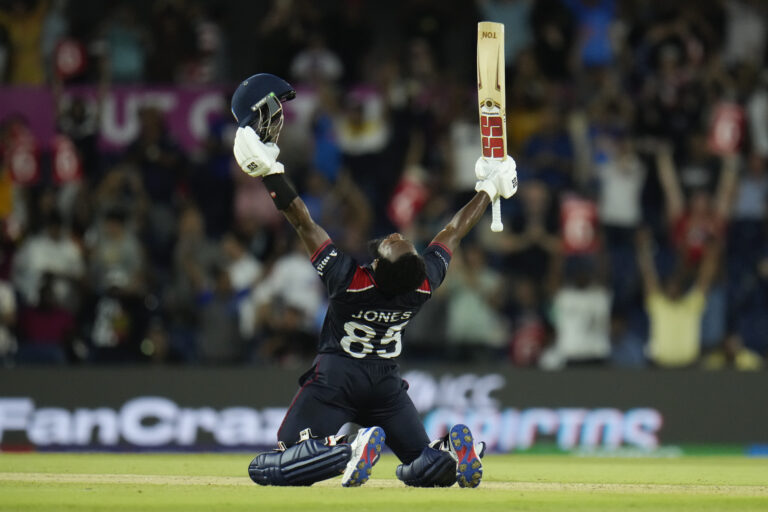Cricket’s Contribution to Sportsmanship
Allpaanel, 11xPlay: Sportsmanship in cricket has a long-standing tradition that dates back to the early days of the sport. The principles of fair play, respect for opponents, and upholding the spirit of the game have been integral to the ethos of cricket since its inception. In the 18th and 19th centuries, when cricket was predominantly played by gentlemen in England, sportsmanship was viewed as a reflection of one’s character and values.
Players were expected to demonstrate grace and integrity on and off the field, regardless of the outcome of the match. This ethos of sportsmanship was not only upheld by players but also by spectators, who valued the spirit of fair competition above all else. The history of sportsmanship in cricket serves as a testament to the enduring values of camaraderie, respect, and integrity that continue to shape the game to this day.
Role Models in Cricket Demonstrating Sportsmanship
In cricket, role models play a crucial role in setting the standards for sportsmanship on and off the field. These individuals are not only exceptional athletes but also exemplify fair play, respect for opponents, and integrity in their conduct. By consistently demonstrating sportsmanship in their actions, they inspire not only their teammates but also fans worldwide to uphold the values of the game.
From legendary players like Sir Don Bradman to modern-day stars like Virat Kohli and Kane Williamson, cricket has seen a long line of role models who have left a lasting impact on the sport through their displays of sportsmanship. Whether it is applauding an opponent’s exceptional performance, accepting umpire decisions with grace, or showing humility in victory and resilience in defeat, these players embody the true spirit of the game and serve as beacons of inspiration for aspiring cricketers. Their actions go beyond mere athleticism, serving as a reminder that true greatness in cricket is not just about skill but also about character.
Fair Play and Integrity in Cricket Matches
Fair play and integrity are fundamental aspects of cricket matches. Players are expected to abide by the laws and regulations set forth by the governing bodies of the sport. Any form of cheating or manipulation can tarnish the spirit of the game and affect the outcome of matches. Umpires play a crucial role in ensuring that matches are conducted fairly and that the integrity of the game is maintained at all times.
Instances of unsportsmanlike conduct, such as tampering with the ball, intimidating opponents, or disputing umpire decisions, not only go against the principles of fair play but also set a negative example for young fans and aspiring cricketers. It is essential for players to uphold the values of sportsmanship and show respect towards their teammates, opponents, and officials. By staying true to the ethos of the game, cricket can continue to serve as a beacon of fair play and integrity in the world of sports.
Instances of Sportsmanship in Cricket
In a Test match between Australia and South Africa in 2008, a remarkable display of sportsmanship was witnessed when South African cricketer, AB de Villiers, admitted to grassing a catch that was claimed by the Australian batsman, Adam Gilchrist. Despite the on-field umpires giving Gilchrist out, de Villiers chose to uphold the true spirit of the game by acknowledging that he had not taken a clean catch.
Another memorable instance of sportsmanship unfolded in a match between India and Pakistan during the 2011 World Cup semi-final. Indian cricketer, Virat Kohli, caught the Pakistani batsman, Misbah-ul-Haq, off a delivery bowled by Zaheer Khan. As Misbah began to walk off the field, Kohli stopped him and signaled to the umpires that he had not taken the catch cleanly. This act of honesty earned Kohli widespread praise for his integrity on the cricketing field.
Impact of Umpires on Maintaining Sportsmanship in Cricket
Umpires play a crucial role in upholding sportsmanship in cricket matches. Their decisions are respected by players and spectators alike, setting the tone for fair play and integrity on the field. The impartiality and professionalism of umpires not only ensure that the rules of the game are followed but also promote a sense of respect among the teams.
By maintaining a sense of control and authority during matches, umpires help prevent any potential conflicts or unsportsmanlike behavior on the field. Players understand that the ultimate authority lies with the umpires, and their decisions must be accepted without dispute. This adherence to the umpire’s rulings fosters a culture of sportsmanship within cricket, where the spirit of fair play prevails even in the heat of competition.
The Spirit of the Game in Cricket
In cricket, the spirit of the game is a fundamental principle that governs players’ behavior on and off the field. It encapsulates the idea of fair play, respect for opponents, and upholding the integrity of the sport. This unwritten code of conduct emphasizes the importance of playing the game not just to win, but to uphold the values that cricket stands for.
Players are expected to abide by the spirit of the game by displaying honesty, humility, and sportsmanship in their actions. This includes accepting the decisions of the umpires without dissent, acknowledging good performances from opponents, and showing grace in both victory and defeat. The spirit of the game fosters a sense of camaraderie among players and promotes a healthy competition that goes beyond just the results on the scoreboard.
Educational Value of Sportsmanship in Cricket
Sportsmanship in cricket serves as a vital educational tool for players at all levels. It goes beyond winning and losing, emphasizing the importance of fair play, respect for opponents, and acceptance of umpires’ decisions. By instilling these values, cricket teaches players key life skills such as resilience, teamwork, and humility.
Cricket’s emphasis on sportsmanship also teaches players to handle success and failure with grace and dignity. Whether celebrating a victory or accepting defeat, players learn to show respect towards their opponents and the game itself. This educational aspect of sportsmanship in cricket helps in shaping individuals with a strong sense of integrity and character both on and off the field.
Promoting Respect and Etiquette in Cricket
Respect and etiquette in cricket are fundamental values that are upheld by players, officials, and fans alike. It is essential for everyone involved in the game to demonstrate mutual respect and adhere to proper etiquette on and off the field. By promoting these values, cricket can continue to be a sport that is admired for its sportsmanship and integrity.
Players are not only ambassadors of their team but also representatives of the sport itself. It is imperative that they conduct themselves with dignity, uphold the spirit of fair play, and show respect towards their opponents, teammates, and the game. Emphasizing the importance of respect and etiquette in cricket helps in fostering a positive and inclusive environment that encourages camaraderie and healthy competition.
Cricket’s Influence on Other Sports in Promoting Sportsmanship
Cricket’s reputation for promoting sportsmanship has had a ripple effect beyond its own boundaries, inspiring other sports to prioritize fair play and integrity. The values ingrained in the game, such as respect for opponents and adherence to rules, have served as a model for athletes, coaches, and fans across various sporting disciplines. This influence has been particularly evident in team sports where collaboration and mutual respect are essential for success.
The emphasis on upholding the spirit of the game in cricket has resonated with athletes and spectators alike, fostering a culture of fair competition and goodwill in the sporting world. As other sports recognize the positive impact of sportsmanship on performance and camaraderie, they have looked to cricket as a beacon of values to emulate. By championing respect, humility, and ethical behavior, cricket has set a standard for sportsmanship that transcends boundaries and unites athletes in a common pursuit of excellence.
Future of Sportsmanship in Cricket
As cricket continues to evolve and attract a global audience, the future of sportsmanship in the sport remains a key aspect of its growth and success. With players serving as ambassadors of fair play and integrity on the field, the emphasis on upholding the spirit of the game is more vital than ever. The development of young cricketers into not only skilled athletes but also exemplary sportsmen and sportswomen will be crucial in shaping the future landscape of cricket.
The role of coaches, parents, and administrators in instilling the values of respect, humility, and honesty in players cannot be overstated. By emphasizing the importance of sportsmanship from the grassroots level up to professional ranks, cricket can continue to serve as a beacon of fair competition and mutual respect. As the sport navigates the challenges of modernization and commercialization, nurturing a culture of sportsmanship will be instrumental in ensuring cricket’s enduring legacy as a game that values fair play above all else.
What is sportsmanship in cricket?
Sportsmanship in cricket refers to fair play, respect for opponents, and integrity in the game.
Why is sportsmanship important in cricket?
Sportsmanship is important in cricket to maintain the spirit of the game and uphold its values of fair play and respect.
How do role models in cricket influence sportsmanship?
Role models in cricket set an example for others to follow by demonstrating good sportsmanship on and off the field.
What role do umpires play in maintaining sportsmanship in cricket matches?
Umpires play a crucial role in enforcing the rules of the game and ensuring fair play among players.
How can sportsmanship in cricket be promoted?
Sportsmanship in cricket can be promoted through education, training, and by setting a positive example for others to follow.
What is the educational value of sportsmanship in cricket?
Sportsmanship in cricket teaches players important values such as respect, integrity, and teamwork.
How does cricket influence other sports in promoting sportsmanship?
Cricket sets an example for other sports in promoting sportsmanship through fair play, respect for opponents, and adherence to the rules.
What is the future of sportsmanship in cricket?
The future of sportsmanship in cricket will depend on the continued efforts of players, officials, and fans to uphold the values of fair play and integrity in the game.







